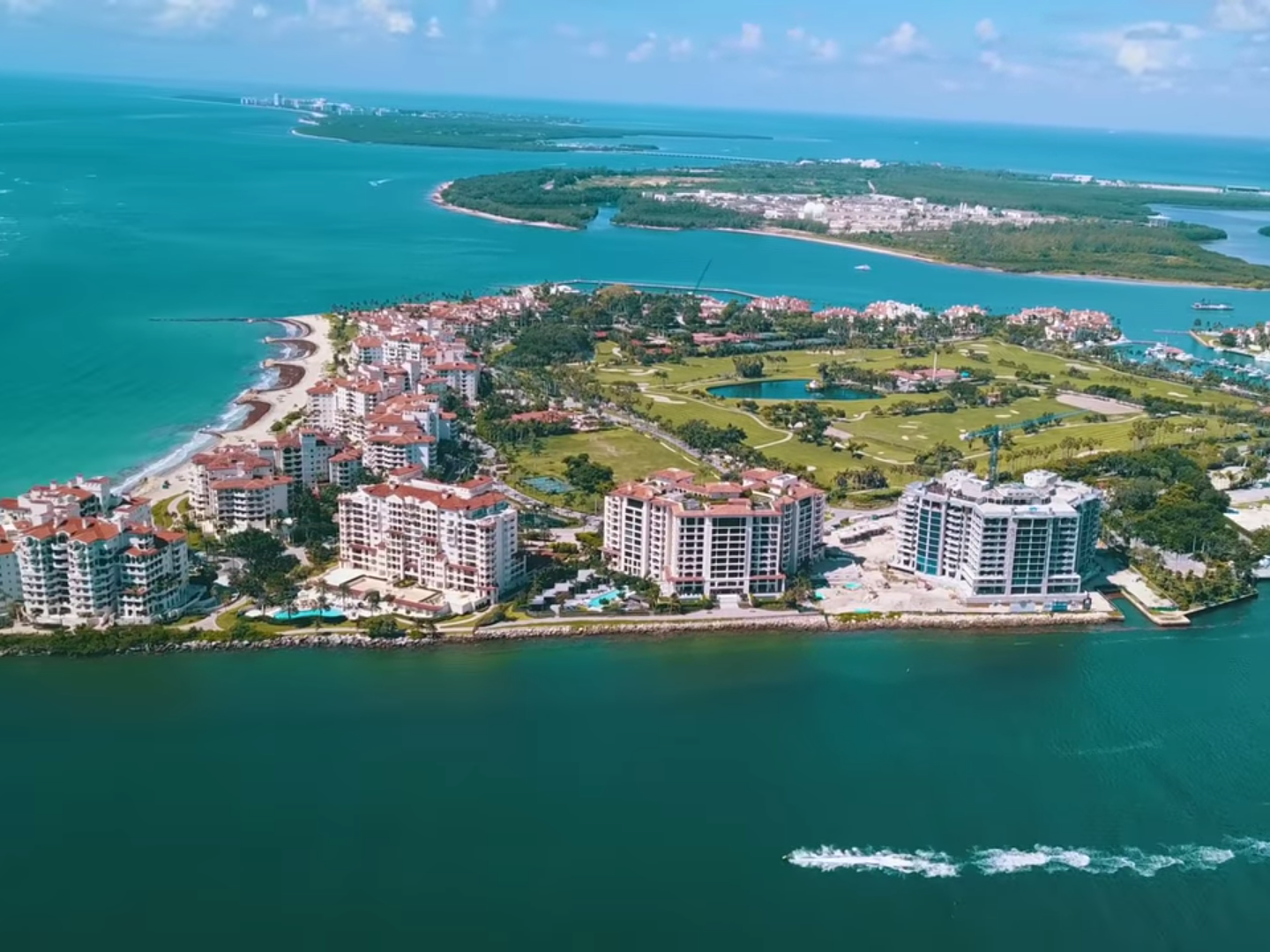How America’s richest zip code is handling coronavirus
The private island in Miami has secured antibody tests for all residents and staff

It has been claimed by some that the coronavirus is a great equaliser; it befalls the rich and the poor just the same. But try telling that to the residents of Fisher Island, otherwise known as the richest zip code in America.
The exclusive man-made island, off the coast of Miami, is home to some 800 families with an average income of around $2 million. The 216-acre paradise, scattered with luxury condominiums and beaches, counts CEOs, celebrities and sports stars among its residents and former occupants — Oprah Winfrey, Boris Becker and Mel Brooks have all lived here.
That wealth has given residents an entirely different experience of the deadly pandemic to most of America. In the last few weeks, this private island of millionaires has been a microcosm of how the super-rich are enduring the outbreak.
“If you have the means to be able to, this is probably one of the best places to be in the country during a pandemic,” said Matthew Barnes, a resident. “We’re in a very unique situation.”
While most Americans have struggled to get tested for the virus, Fisher Island purchased antibody tests for everyone who lives and works there. The thousands of tests were purchased from a healthcare provider in Miami, Florida — a state in which only 1 percent of the population has received a test for Covid-19.
But some of the institutions that cater to the island’s affluent residents have also drawn criticism for how they have handled the coronavirus. Earlier this month, the Fisher Island Community Association, to which residents pay around $30,000 a year in fees, recently considered applying for a £2 million loan through the US government’s $484 billion stimulus package for small businesses impacted by the coronavirus.
According to its website, the association’s job is to “manage, maintain and improve the common areas.” The association put the question to residents, according to Mr Barnes, who describes himself as an entrepreneur and investor. He was among those who raised objections with his fellow neighbours.
“Some of the fee we pay covers private ferry service to take us to our homes,” he said. “So I think to myself, wait, is it the right thing to do to take $2 million from the government, much of which we wouldn't have to repay? Well the answer is simply no. This isn't free money, eventually all taxpayers would likely have to pay for this.”
The federal loans are intended for businesses with 500 employees or fewer and are designed to cover payroll and other costs throughout the economic downturn caused by the coronavirus. But the programme has come under scrutiny in recent weeks amid a chaotic roll-out that saw funds going to large public companies.
According to the Wall Street Journal, at least 13 public companies that received hardship loans through the programme have said they would return the money. AutoNation, the largest car dealership chain in the US, gave back $77 million in forgivable loans, the Journal reported. Burger chain Shake Shack also announced it would return $10 million.
A separate report from the Associated Press found that at least 94 companies that received aid since the programme opened April 3 were publicly traded — some of which had market values well over $100 million.
In response to the criticism, the US Treasury Department issued new guidelines which stated that recipients must certify “in good faith” that they need the loan to keep operating.
Mr Barnes said he raised his objections because he felt that a housing association in America’s richest postcode perhaps did not need to take money intended for struggling small businesses.
“In the end, sure we will have less money in our bank account, but we will survive,” he said.
After consulting members, the housing association did not take the money. But soon after, another of the island’s super-rich clubs applied for the government money.
The Fisher Island Club — an exclusive member’s club — costs members some $250,000 a year and gives them access to private beaches, tennis clubs and marinas.
This month the club announced it was losing millions in revenue due to the downturn and conducted a straw poll of its members to decide a way out: either members would pay $5,000 or the club would take the federal aid. The members could choose between paying for the shortfall themselves or accepting government money.
Thomas Lauria, a corporate lawyer, told the Miami Herald: “That we would even consider taking a government loan out of a program that is designed to really help small businesses on the verge of going out of business — every dollar we take is a dollar somebody else can’t get.”
According to the newspaper, 67 percent of members voted for the club to take the loan. The club’s board decided against taking it anyway.
“We believe this decision is in the best interest of the Club and its Members,” the board said Thursday, according to the Herald. “We will be reviewing options for addressing the operating deficit over the next few weeks.”
While no government money may be coming to the island for now, Mr Barnes said its residents are facing a lockdown like everyone else.
“There have definitely been some changes — a lot of the things are shut down. The beach has shut down and the club.” But, he added: “It's a very unique place. It's a beautiful place.”
Join our commenting forum
Join thought-provoking conversations, follow other Independent readers and see their replies
0Comments